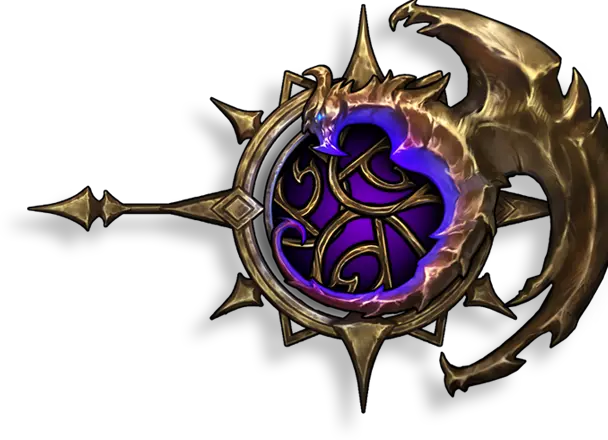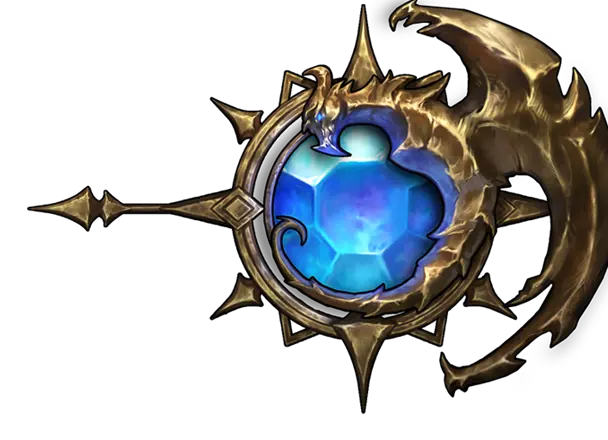Secure Gaming Ecosystems: The Role Of Blockchain In Reducing Fraud
The gaming industry has always been at the forefront of technological innovation. From early arcade games to immersive virtual reality experiences, gaming constantly evolves. Today, a new technology is poised to revolutionize gaming once again: blockchain. One of the most significant impacts of blockchain on gaming is its potential to create secure gaming ecosystems. By leveraging blockchain’s inherent features, developers can build games that are more resistant to fraud, more transparent, and ultimately, more trustworthy. This article will explore the role of blockchain in reducing fraud and enhancing security within the gaming industry. Using blockchain in gaming brings many perks. “What are the advantages of blockchain for gamers?”
Some advantages include true ownership of in-game assets, the ability to earn real-world value through play-to-earn models, enhanced security against hacking and fraud, and community-driven development.
Understanding The Threat of Fraud in Gaming
The online gaming world is not immune to malicious activities. “Fraud in online gaming” is a significant concern.
Online gaming is susceptible to various forms of fraud, including cheating, account theft, item duplication, and payment fraud.
These fraudulent activities can ruin the gaming experience, cause financial losses, and erode trust in the gaming ecosystem. Traditional gaming models, with their centralized servers and databases, are particularly vulnerable.
What is Blockchain Technology?
Before diving into blockchain’s role in combating fraud, it’s essential to understand the basics. “What is blockchain?”
Blockchain is a decentralized and distributed digital ledger technology that records transactions across a network of computers. The data stored on the blockchain is immutable, meaning it cannot be altered once recorded.
This immutability is a cornerstone of blockchain’s security. “Benefits of blockchain” are numerous.
Blockchain technology offers numerous benefits, including enhanced security, transparency, immutability, and efficiency.
How Blockchain Enhances Gaming Security
Blockchain offers a robust framework for creating secure gaming ecosystems. Its decentralized nature, cryptographic security, and transparency make it an ideal solution for many of the security challenges faced by the gaming industry.
Immutable Ledger and Transparency
An immutable ledger ensures that all transactions and in-game events are permanently recorded and cannot be altered, providing a transparent and auditable history that helps prevent fraud and disputes.
“Importance of transparency in gaming” cannot be overstated.
Transparency in gaming builds trust between developers and players, ensuring that game mechanics, reward systems, and asset ownership are clear and verifiable.
Secure Asset Ownership With NFTs
Blockchain enables true ownership of digital assets through NFTs. “What are NFTs?”
NFTs (Non-Fungible Tokens) are unique digital assets that represent ownership of a specific item, such as in-game items, artwork, or collectibles. They are verifiable on the blockchain and cannot be replicated.
NFTs ensure that players truly own their in-game items. This ownership is verifiable and cannot be tampered with. “Tokenized assets” are changing the game.
Tokenized assets are digital representations of in-game items, characters, or currencies on the blockchain. They can be uniquely owned, traded, and used within and across different gaming ecosystems.
Smart Contracts For Fair Play
“What is a smart contract?”
A smart contract is a self-executing program stored on the blockchain that automatically enforces the terms of an agreement when predefined conditions are met.
“Smart contracts in gaming” automate many processes.
Smart contracts automate in-game processes, such as the transfer of assets, distribution of rewards, and enforcement of game rules, ensuring fairness and transparency.
They ensure that game rules are enforced fairly and transparently. This eliminates many forms of cheating and fraud.
Decentralized Marketplaces For Secure Trading
“Decentralized marketplaces” are transforming in-game economies.
Decentralized marketplaces allow players to trade digital assets directly with each other, without the need for intermediaries, reducing transaction costs and increasing efficiency.
This reduces the risk of fraud associated with traditional, centralized marketplaces.
Blockchain’s Role in Preventing Specific Types of Fraud
Account Theft
With blockchain, player accounts and assets are secured using cryptographic keys. “Security in blockchain” is robust.
Blockchain’s decentralized and cryptographic nature provides robust security against hacking and unauthorized access.
This makes it significantly more difficult for hackers to steal accounts or assets.
Item Duplication and Counterfeiting
NFTs ensure that each in-game item is unique and verifiable. “How blockchain prevents fraud” is largely due to its design.
Blockchain’s immutable and transparent nature makes it difficult to tamper with game data or manipulate transactions, significantly reducing the risk of fraud.
This eliminates the problem of item duplication and counterfeiting.
Payment Fraud
Blockchain-based payment systems reduce the risk of payment fraud. Transactions are transparent and irreversible, protecting both players and developers.
Cheating and Game Manipulation
Smart contracts can be used to enforce game rules automatically. This makes it much harder for players to cheat or manipulate the game’s mechanics. “Enhanced security in gaming” is a major benefit.
Enhanced security in gaming refers to the measures taken to protect players’ accounts, assets, and personal data from unauthorized access, theft, and fraud. Blockchain technology contributes significantly to enhanced security through its decentralized and cryptographic nature.
The Rise of Play-To-Earn and Its Security Implications
“Play-to-Earn (P2E)” is a new model in gaming.
Play-to-Earn is a gaming model where players can earn real-world value, typically in the form of cryptocurrency or NFTs, by participating in the game and achieving certain milestones.
“Real-world value in gaming” is now possible.
Blockchain technology enables in-game assets and achievements to have real-world value by allowing them to be traded on open marketplaces for cryptocurrency or fiat currency.
P2E games rely heavily on blockchain to ensure the security and integrity of their economies. The ability to earn real-world value makes security even more critical.
Example: Axie Infinity
In Axie Infinity, players earn Smooth Love Potion (SLP) tokens and NFTs by breeding and battling creatures called Axies. These tokens can be traded for fiat currency, allowing players to generate income directly from the game.
Example: Legends of Elysium
In Legends of Elysium, players can obtain cards that can be transformed into NFTs, creating unique blockchain-based assets tied to distinct characters and abilities. These NFTs enhance gameplay by offering strategic value and ownership.
Example: Decentraland
In Decentraland, players buy, sell, and develop virtual real estate using blockchain-based currencies. The decentralized nature of the marketplace ensures fairness and transparency.
Challenges and Solutions in Blockchain Gaming Security
While blockchain offers significant security benefits, challenges remain. “Challenges of blockchain gaming” include:
Challenges facing blockchain gaming include scalability issues, high transaction fees on some networks, regulatory uncertainty, and the complexity of the technology for mainstream users.
Scalability
“Scalability solutions (Layer 2)” are being developed.
Layer 2 solutions, such as Polygon and Immutable X, are being developed to address scalability issues by processing transactions off the main blockchain, reducing congestion and fees.
Energy Consumption
“Proof of Work (PoW)” is energy-intensive.
Proof of Work is a consensus mechanism that requires miners to solve complex mathematical problems to validate transactions. It is known for its high energy consumption.
“Proof of Stake (PoS)” offers a solution.
Proof of Stake is a more energy-efficient consensus mechanism where validators are chosen based on the number of coins they hold and are willing to “stake” as collateral.
User Experience
Blockchain technology can be complex for new users. Developers are working to create more user-friendly interfaces and experiences.
Regulatory Uncertainty
The regulatory landscape for blockchain and cryptocurrencies is still evolving. Clearer regulations will provide more stability and confidence for developers and players.
The Future of Secure Gaming Ecosystems
“Future of blockchain gaming” is bright.
The future of blockchain gaming includes the development of the Metaverse, increased interoperability between games, and the growth of decentralized autonomous organizations (DAOs) that give players a greater voice in game development.
“Interoperability in blockchain gaming” will be key.
Interoperability in blockchain gaming refers to the ability of digital assets, such as NFTs, to be used across multiple games and platforms, creating a more connected and fluid gaming experience.
“Decentralized Autonomous Organizations (DAOs) in gaming” will empower players.
DAOs in gaming allow players to participate in the governance and decision-making processes of a game, such as voting on proposed changes or new features, through the use of governance tokens.
“Impact of blockchain on game developers” is significant.
Blockchain technology provides game developers with new tools to create more engaging and rewarding gaming experiences, while also offering alternative revenue models through the sale of NFTs and in-game tokens.
Blockchain technology is paving the way for secure gaming ecosystems. By leveraging its core features—decentralization, transparency, immutability, and cryptographic security—blockchain addresses many of the fraud and security challenges that plague traditional gaming.







